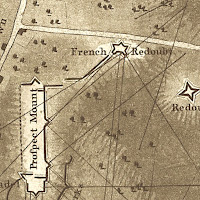“Frenchmen at the Siege of Boston,” 23 Mar.
On Thursday, 23 March, I’ll speak at the Longfellow House-Washington’s Headquarters National Historic Site on the topic “Frenchmen at the Siege of Boston.”
This is the site’s annual Evacuation Day lecture, presented in partnership with the Friends of the Longfellow House–Washington’s Headquarters. It honors the successful end of the siege of Boston, which Gen. George Washington oversaw from that Cambridge mansion.
Our description of this talk says:
I’ll speak in the Longfellow carriage house. Seating is limited, so please reserve seats through this link. This will also be our first attempt at livestreaming a talk through the site’s YouTube page.
This is the site’s annual Evacuation Day lecture, presented in partnership with the Friends of the Longfellow House–Washington’s Headquarters. It honors the successful end of the siege of Boston, which Gen. George Washington oversaw from that Cambridge mansion.
Our description of this talk says:
Histories of the French government’s support for the American Revolution usually begin with Lafayette, the secret supply chain organized by Beaumarchais, and the formal alliance in 1778.I’ll share some of my research about French noblemen and merchants who visited Massachusetts in 1775. I’ll also rely on Rick Detwiller’s excellent research about two more men who went beyond visiting to participate in the siege itself. As shown above, they left their mark on the landscape, or at least on Henry Pelham’s map of Boston: a fortified site labeled “French redoubt.”
But French gentlemen were actually at the siege of Boston in 1775—observing the armies, meeting Gen. George Washington at his headquarters, and even briefly overseeing the provincial artillery force. Washington and his generals were also trying to win over the francophone subjects of Canada.
In this talk, author J. L. Bell will explore the first secret and tentative steps toward French-American friendship in Cambridge in 1775.
I’ll speak in the Longfellow carriage house. Seating is limited, so please reserve seats through this link. This will also be our first attempt at livestreaming a talk through the site’s YouTube page.


1 comment:
Despite New England's deep antipathy towards Catholicism and the many colonial wars fought against the French, Boston's commercial ties to French colonies were deep and longstanding.
Prior to the conquest of Acadia and Ile Royale (Cape Breton) in the 1750s, Boston had significant trading relations with both French settlers in both colonies, and no small portion of its West Indies trade was with French islands.
I've often wondered how those ties with "our friends the enemy" might have opened the door to mutually-beneficial collaboration during the American Revolution.
Post a Comment